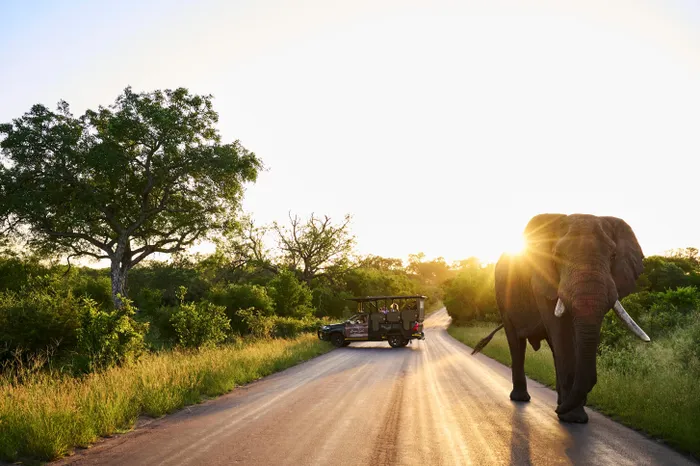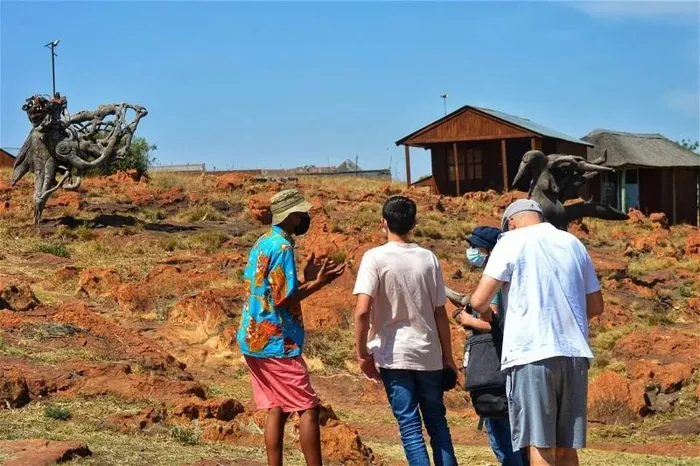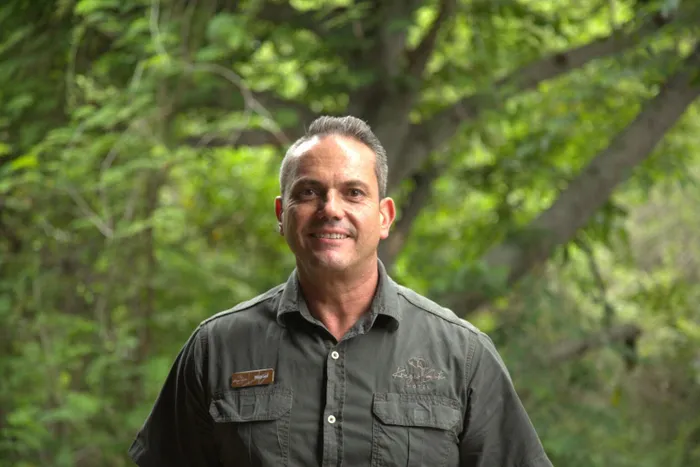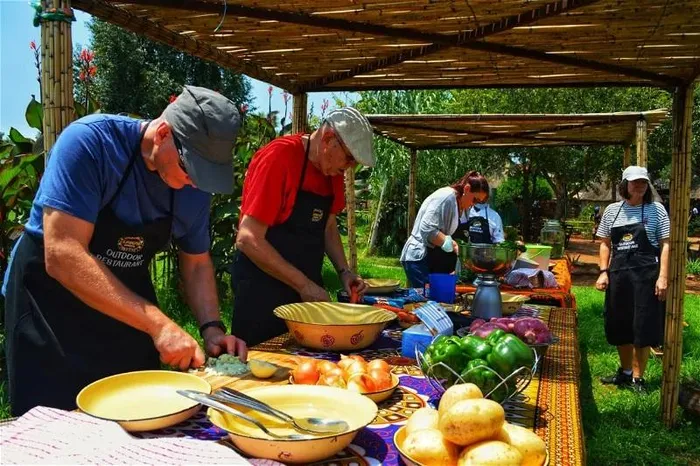
A safari offers more than just wildlife viewing; it's an opportunity for travellers to learn about the environment and how animals roam in their natural habitat. Some game drives even provide up-close and personal experiences.
Image: Supplied
Experiential travel, which first became popular in 2014, has seen a notable increase in uptake following the pandemic.
This is more prevalent among younger generations, especially millennials and Gen Z.
In this era of social media fame, where personal adventures gain likes and followers, travellers are gravitating towards more life-changing and soul-enriching experiences.

Walk through the township with an expert local guide and gain a truly personal experience as you explore its diverse neighborhoods on foot.
Image: Soweto Backpackers
These can vary from going from those standard sightseeing trips evolving into a more connected experience, where participating becomes more enriching. Also, these tours are tailored for the mindful traveller. Often, it is a local imbuing it with plenty of culture and history.
And hotels are no longer the only go-to option. Eco-friendly accommodation, community-run guesthouses and homestays are the preferred choice.
First, let’s unpack experiential travel, which is also known as immersive, transformational and meaningful travel.
It essentially embraces the “living like a local” concept.
As such, participating in cooking classes, art classes, festivals, spiritual retreats, sharing a traditional meal with locals and lending a helping hand with a conservation project, among other things, tend to strike a chord with the traveller.
In a recent chat with Miguel Farinha, the hotel manager at Kruger Gate Hotel, he unpacked this evolving landscape.
“In recent years, immersive and experiential travel has evolved significantly. Travellers are increasingly seeking deeper connections with the destinations they visit, moving beyond traditional sightseeing to engage more meaningfully with local cultures, communities, and environments.
“This shift has been influenced by a growing desire for authenticity, personal growth, and sustainable practices in travel,” he said.
Farinha noted: “The Covid-19 pandemic further accelerated this trend, as people began to value meaningful experiences and personal connections more than ever. Travellers are now more inclined to participate in activities that allow them to 'live like a local', such as cooking classes, cultural festivals, and community-based tourism initiatives.
“This evolution reflects a broader shift towards 'slow tourism', where the emphasis is on quality over quantity, and experiences are designed to be enriching and transformative.”

Miguel Farinha, the hotel manager at Kruger Gate Hotel, unpacked the growing experiential travel trend.
Image: Supplied
Based on his interactions with travellers, he revealed the kind of experiences they are drawn to as follows:
He added: “These preferences indicate a desire for travel that is not only enjoyable but also meaningful and responsible.”
In 2020, the tourism industry, globally, took a huge knock due to the coronavirus grounding travellers. Five years on, it has made notable strides in recovering but also in stimulating its growth with various incentives.
Farinha highlighted experiential travel's role in boosting tourism.
“As global tourism rebounded to 99% of pre-pandemic levels in 2024, experiential travel has been at the forefront of this resurgence,” he shared.
“Travellers are now seeking trips that offer personal growth, connection, and authenticity, leading to increased demand for experiences that are immersive and meaningful.
“This shift is encouraging travel providers to innovate and diversify their offerings. Moreover, experiential travel often involves smaller groups and personalised itineraries, aligning well with the health and safety considerations that have become paramount in the post-pandemic era.”

While ordering a local meal is simple, there's a unique reward in learning to cook and enjoy it under the guidance of a chef.
Image: Soweto Backpackers
According to a McKinsey survey, the factors most important to travellers when selecting a destination were the range and quality of local activities on offer, and the ability to experience authentic local customs and culture were key.
So as much as everyone loves to post their travel sojourns on Instagram and TikTok, by sharing more curated experiences that shun the one-size-fits-all tourist traps and activities, travel is evolving and, with it, the tourism industry at large and its offerings.
Below are Farinha’s Top 5 immersive experiences in South Africa:
Kruger National Park Safari: Embark on a guided safari to witness the Big Five in their natural habitat. This experience offers not only wildlife viewing but also insights into conservation efforts and the ecological significance of the region.
Cape Town cultural tours: Explore the rich cultural tapestry of Cape Town through visits to historic sites, art galleries, and local communities. Engaging with residents and participating in cultural activities provides a deeper understanding of the city's diverse heritage.
Drakensberg hiking adventures: Trek through the majestic Drakensberg Mountains, experiencing breathtaking landscapes and ancient rock art. These hikes offer both physical challenge and cultural enrichment.
Stellenbosch wine tasting: Discover the renowned vineyards of Stellenbosch, engaging in wine tastings and learning about the winemaking process. This experience combines culinary delight with scenic beauty.
Soweto township tour: Visit the vibrant township of Soweto to learn about its pivotal role in South Africa's history. Engage with local guides, experience traditional cuisine, and gain insights into the community's resilience and culture.